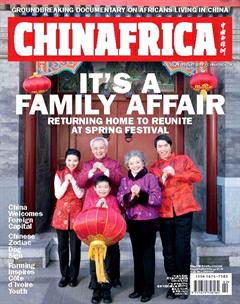Chinese Festivals
By+Xu+Joyce
chinese festivals, some of which date back thousands of years ago, are rich in content and possess various forms. A good understanding of Chinese festivals and their culture is very helpful in learning how to do business in China, how to establish friendships with the Chinese people during such festivals and how to create marketing opportunities.
Major traditional Chinese festivals include the Spring Festival, Tomb Sweeping Day, Dragon Boat Festival and Mid-Autumn Festival. It is worth noting that all of those festivals are legal holidays in China.
Spring Festival
Spring Festival is the traditional New Years Day in China. Its importance is the same as that of Christmas Day in the West. Every family posts Spring Festival couplets on doorways, decorates their houses and celebrates the New Year. The eve before Spring Festival is called Chinese New Years Eve, equivalent to Christmas Eve. The whole family gathers together and enjoys a New Years Eve dinner during which dumplings are absolutely necessary. In addition, Chinese people have the tradition of staying up late on New Years Eve. The whole family stays up until midnight or even all night. Meanwhile, almost all Chinese people watch the Spring Festival Gala on China Central Television.
Spring Festival is a good time to visit relatives and friends. People pay New Year calls on each other and children normally receive money in red envelopes.
Other Festivals
The 15th day of the first lunar month in the Chinese calendar is the Lantern Festival. It is the first full moon after Spring Festival. During Lantern Festival, people eat sweet sticky rice dumplings and view lanterns. Tomb Sweeping Day has a history of over 2,000 years. People pay homage to ancestors, sweep their tombs and grieve over martyrs on that day. Dragon Boat Festival is celebrated to memorialize the great patriotic poet Qu Yuan and characterized by eating rice dumplings and having dragon boat races. Mid-Autumn Festival is for family reunions, moon cakes and enjoying the full moon. In addition, remember that October 1 is Chinas National Day, which usually means a seven-day holiday.
If you go to China for business, you should avoid those days because most people are not in the mood to work during these festivals, particularly the Spring Festival. If you run a company in China, you should abide by the rules related to legal holidays.
“Personal PR” during festivals
Although most people do not have to work during festivals, it is a good opportunity to visit friends and relatives. Also, it is a good opportunity for personal public relations. Traditional Chinese festivals have unique customs and special gifts. A good understanding of these customs is very helpful in promoting yourself with your Chinese clients. For instance, when visiting your clients before or after Spring Festival, prepare New Years gifts and wish them good fortune in the New Year. When people return to work after the Spring Festival holidays, some companies may distribute red envelopes to employees. If foreign bosses do the same, they will become popular. During Spring Festival, Chinese people like to wear red. Since the number eight sounds like wealth, the amount of money in red envelops should end in the number eight.
Rice dumplings are the “exclusive right”of Dragon Boat Festival and moon cakes are the traditional gift of Mid-Autumn Festival. If you send regards and such gifts to your Chinese clients during these festivals, they will appreciate and be impressed.
It is noteworthy that the Chinese not only celebrate traditional Chinese festivals, but also some Western festivals such as Valentines Day (the traditional Chinese Valentines Day is the seventh day of the seventh lunar month), Christmas Day, Mothers Day and so on. These foreign festivals add more flavor to Chinas festival culture. Foreign businessmen can improve the relations with their Chinese friends or employees during those festivals. For instance, if you invite your Chinese friends to a Halloween party, they may be very interested and happy to attend. And on April 1, do not be surprised if your Chinese friends play a practical joke on you.

